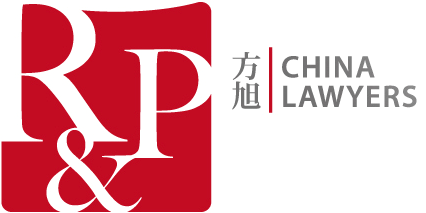Insurers sometimes face the situation where a company registered in a foreign country caused damage to the subject matter of insurance. After the insurer has made compensation to the insured party according to the insurance contract, the insurer may have difficulties seeking remedy from the company causing the damage. This article introduces whether a foreign insurer can initiate legal proceeding against a third party in the People’s Republic of China (“PRC”) and describes the general procedure rules for such litigation.
1. Legal Basis for Foreign Insurer to Claim from a Chinese Third Party
The Insurance Law of the People’s Republic of China provides that in the event of an insured incident, the insurer shall, from the date of indemnification, exercise its rights of subrogation within the limits of the indemnification amount. Furthermore, the Interpretation of the Supreme People’s Court mandates that the People’s Court shall uphold the assertion in instances where the insurer makes a subrogated claim concerning the insured’s right to seek compensation due to infringement or default by a third party.
The subrogation right of insurers has been established in the above provisions. This essentially implies that the insurer, subsequent to indemnifying the insured, may pursue a claim against the third party responsible for causing the damages to the insured. Though no PRC laws have specific stipulations about a foreign insurer’s right of subrogation, it has also not been excluded. Additionally, there are a few precedents in which foreign insurers filed litigation in Mainland China against Chinese defendants based on the right of subrogation. Therefore, the answer for whether a foreign insurer can initiate legal proceeding against a third party in China is generally yes.
2. Governing Law
For a lawsuit initiated by a foreign insurer in mainland China against a Chinese third party, it is necessary to determine which country’s laws applies to the case. If the plaintiff and the defendant unanimously agree that the PRC laws should apply to the case, the court will apply PRC laws.
In case the parties cannot agree on the applicable law, ‘the laws that are most closely related to the civil relations involving the foreigner shall be applied’. Since the nature of subrogation rights is best reflected by the defendant’s indemnity obligation to the insurer and the defendant’s domicile is in China, the laws most closely associated with the subrogation right should be the PRC laws.
3. Competent Court
The Supreme People’s Court provides that where the insurer files a subrogation claim lawsuit against a third party who caused an insured event, the court with jurisdiction shall be determined in accordance with the legal relationship between the insured and the third party.
Under the Civil Procedure Law, with respect to a civil lawsuit filed by a legal person or an organization, normally the People’s Court at the location of the defendant’s domicile shall have jurisdiction. The law also specifies the court with jurisdiction over the different types of legal relationships between the insured and the third party, for example with respect to a tort lawsuit, the People’s Court at the place of occurrence of the tortious act also has jurisdiction.
4. Statute of Limitations
Theoretically speaking, the right of subrogation in insurance is not an independent claim, but a statutory transfer of claim. The statute of limitations for the insurer’s exercise of the right of subrogation against a third party should be the same as the statute of limitations for the insured’s claim for compensation against the third party. In China, the time limitation normally is three years unless the laws provide otherwise. According to the Insurance Law of the People’s Republic of China and the Supreme Court interpretations, the time limitation for subrogation claims begins on the date that the subrogation rights are established, i.e. the date the insurer pays the insured.
Note that different limitation period may apply depending on the nature of the insured’s claim against the third party, for example, the limitation period for bringing a suit regarding disputes over contracts for international sale of goods is four years.
Conclusion
A foreign insurer can start litigation directly against a Chinese third party based on its subrogation right. It is important to identify the nature of legal relationship between the insured and the third party, to decide the jurisdiction and statute of Limitations. However, the success of such litigation is also contingent upon whether the high burden of proof in China can be met. Due to the complexity of such process, it is recommended to seek professional help before commencing such proceeding in China.
R&P China Lawyers
Koen Naber and Claire Li

17/F Central Towers Tower A, 555 Langao Road, Shanghai, 200333, P.R. China
Suite 1110, Block A, Wanda Plaza, No. 93, Jianguo Road, Chaoyang District, Beijing, 100000, P.R. China

